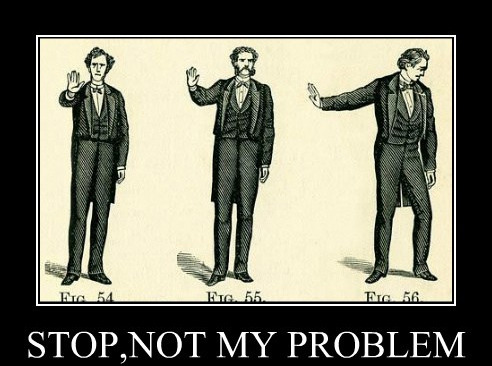
“I'm not racist but...”
began a conversation between myself and a German man last Sunday, while at an afternoon brunch party with a mixture of people I knew and people I didn't, all of them white.
He was of the opinion that people of colour couldn't be “British” or “English”, and that this was an title reserved only for white people. I was of the opinion that he was being bigoted and racist, and I proceeded to tell him so, getting more and more worked up as he revealed increasingly racist views.
After 10 minutes of our 'discussion', during which I had asked him to define racism, used this to explain why his views were racist, and realised that he actually genuinely thought of me as having fewer rights than himself and his white friends based purely on my skin colour, nobody else at the party had joined our conversation.
The funny thing was, though, that I know that a lot of the people at that party would consider themselves politically engaged, liberal and open minded people. I would even wager that if there were a politician voicing the same views as the man at the party, or a policy about to be passed along the lines of what he was saying, they would do what they could to stand up against this prejudice, be that by signing a petition, voting, or attending a protest.
But in this case – when the social pressures of being at a party were apparently first and foremost at play – they were simply embarrassed at the perceived tense attitude that had been created, and unwilling to challenge him. They were feeling uncomfortable at the situation, and tried to steer the conversation into less polemic ground.
When I left the party soon after with a couple of friends, I discovered that they too had been shocked by the opinions voiced. The difference was, though, that they felt like it hadn't been their place to say anything, that they didn't want to make the other guests or the host feel uncomfortable, and that they didn't really know what to say. This lack of willingness to challenge something they knew to be wrong shocked and hurt me.
I sometimes use the metaphor that someone being overtly and offensively racist to me feels a bit like I've experienced physical violence; when someone treats me like a lesser human being than my white counterparts, it really does feel like being punched in the face. I'm shaking afterwards, often almost unable to speak, and feel overwhelmingly exhausted.
What I tried to explain to them is: you shouldn't have to be the one being punched in the face to do something about it.
They, as white people living in Germany, had never been on the wrong side of racism, and consequently had never experienced that biting, intensely personal rage that I feel when someone treats me, or other people of colour, in a discriminatory way. As far as I'm concerned, never having experienced it personally makes no difference to whether you can challenge discrimination or not; consider yourself incredibly lucky that you haven't been put in that position, and use your voice to stand up for those who are, at every occasion that you can. As a woman of colour, it is not my responsibility to shoulder the burden of challenging sexism and racism and xenophobia and god knows what other kinds of discrimination I might face, on my own.
Prejudice manifests itself in all sorts of ways, through offensive policies affecting the lives of millions, through exclusion or discrimination on an institutional level, and, in this case, through one man, voicing his bigoted views at a party. All of these examples are dangerous and discriminatory, and all of these people need to be held to account.
Just because you happen to be a white person, or cis-gender, or a man, or any kind of arbitrary categorisation that bafflingly means you might not face a certain type of prejudice yourself does not mean you can switch your 'good citizen' or 'social responsibility' buttons on and off dependent upon the social situation you find yourself in. I've faced prejudice in all kinds of situations and, believe it or not, the environment in which it happens doesn't make it hurt any less.
I don't get to choose where I come across these offensive and bigoted people; why should you get to choose where you challenge it?